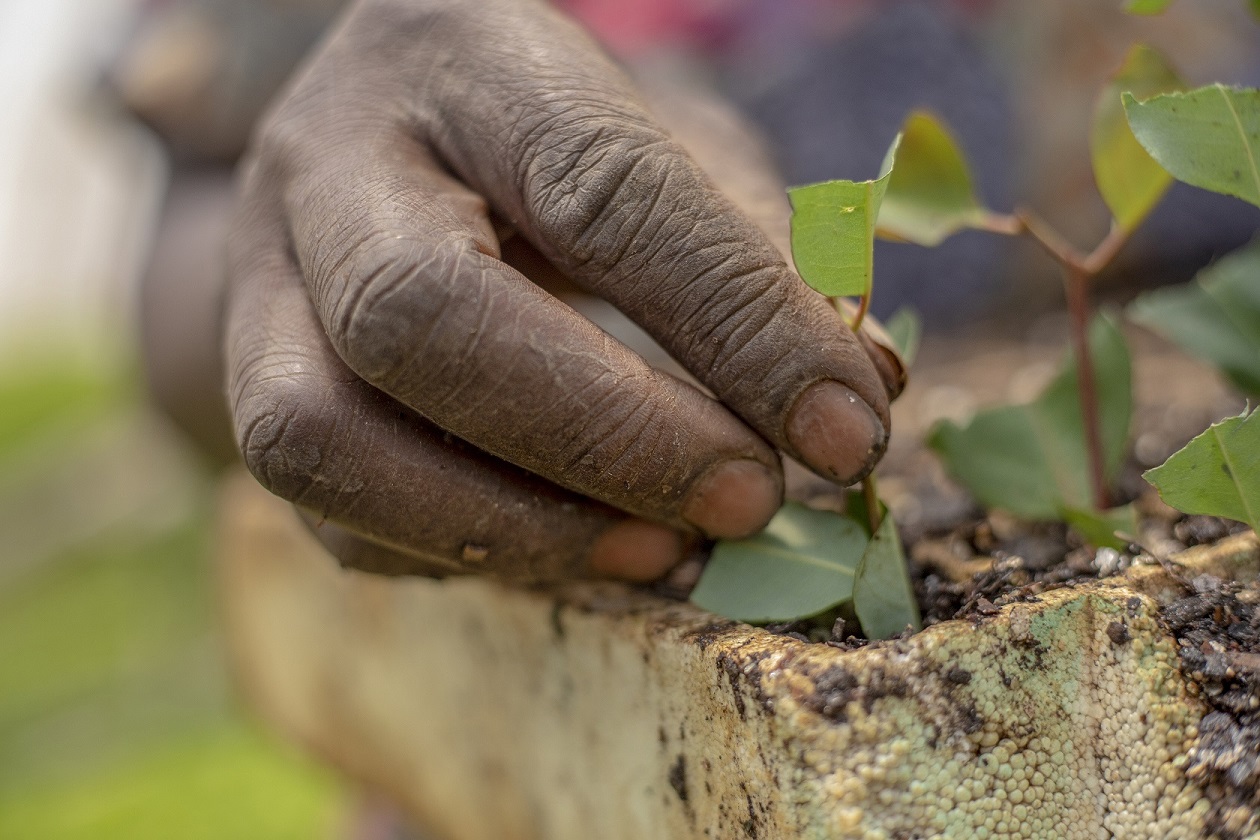Ramifications of COVID-19 for workers at the beginning of the supply chain
Opinion by Evelien Vleeshouwers, Communication Officer for the Women@Work Campaign at Hivos Global Office.
As COVID-19 unfolds and drastically affects all aspects of our lives, it has brought to light longstanding problems in global supply chains. Low wages, reliance on casual labor, gender inequality, and a lack of social protection make people at the beginning of supply chains suffer the most. Now is the time to demonstrate global solidarity and rethink our unsustainable supply chains.
On March 20, the Kenya Flower Council announced: 30,000 people working in Kenyan flower farms have been sent home. The demand for flowers has decreased, so buyers are canceling their orders and air freight has been reduced. The flowers still being sold are going for dumping prices. In a press release issued on Monday 16 March, the Dutch flower auction asked for help, warning that without support, many companies will not survive. With the flower sector being the third largest export sector of the Netherlands, this would be a big hit to the economy. But since most flowers are being produced in East and Southern Africa, it is here where the impact of COVID-19 will be felt the most.
Good climate, low wages
One of the reasons that roses are being produced in Africa is because of the climate. The Netherlands is simply too cold for roses to grow. The other is the low wage-level. This is not only the case for flowers, but also for our food and many of our consumer items. Some of these ‘low-income-countries’ lack a minimum wage, like Ethiopia. This leads to wages that are sometimes even below the World Poverty Line of 1,90 US Dollar per day. And some countries that do have a minimum wage, have had the same wage-level for years. In Uganda, they still use the minimum wage that was set in 1984. And none of the minimum wage levels in Kenya, Tanzania, Rwanda, Uganda, Zambia and Zimbabwe reach the level of a living wage: the amount of money you need for your basic necessities such as housing, food and savings.
Women workers
At the beginning of the flower supply chain, it are often women who pick the flowers. One the one hand, this is because of gender-stereotyping: women are being perceived as having natural delicacy and are therefore seen as better fit to handle flowers. On the other hand, it is because it are low-paid jobs, as mentioned above. Wages below a living wage are always a problem, but even more so in times of crises. It means that the women workers haven’t been able to build up any savings, and therefore lack a safety net. It also means that they won’t have money to access health services that are much needed in times of a pandemic.
The flower pickers often don’t have contracts and work as casual laborers. So with the demand falling, it is easy to fire them. Most of the countries where the flowers are grown lack a robust social protection system, which means that if they lose their job, they have nothing to fall back on. This is aggravated by the fact that many rose growers find ways to avoid paying taxes in the countries where they produce.
Since women in the producing countries are almost always primary caregivers and expected to take care of the sick, their risk of getting infected is greater. This was also seen during Ebola epidemic. Many of the flower farm workers are also single mothers who take care of their children in single-room sheds on or nearby the farm. This makes them very vulnerable to infection.
It’s time for a new system
The quick spread of COVID-19 has highlighted the extent to which we live in a global village. Producing countries immediately feel decreases in demand, while importing countries might struggle to get supplies. We all need each other as we face down one of the largest global crises in recent times. This is an opportunity to reflect on the way we do things and make some long overdue changes. It is time for a new system.
The global supply chains, for flowers as well as for other sectors, need to become more equal. We need supply chains in which everyone is acknowledged for their contribution, and wealth is more equally distributed. We need a system in which our mutual dependence doesn’t leave those at the beginning of the chain so vulnerable.
Living wages for all
Everybody in the supply chain should earn at least a living wage. This will make people more resilient and supply chains more sustainable and fair. Paying employees a decent wage and offering them permanent contracts in a healthy working environment will come at a cost. Producers will have to charge more for their products and use these extra margins to benefit their workers. At the same time, certification bodies need to tighten their standards, and importers must use sustainable purchasing practices. Finally, consumers will have to pay a bit more.
We will all have to work together to create a more sustainable, more resilient system. But then we’ll all be stronger in the face of global economic instabilities.








